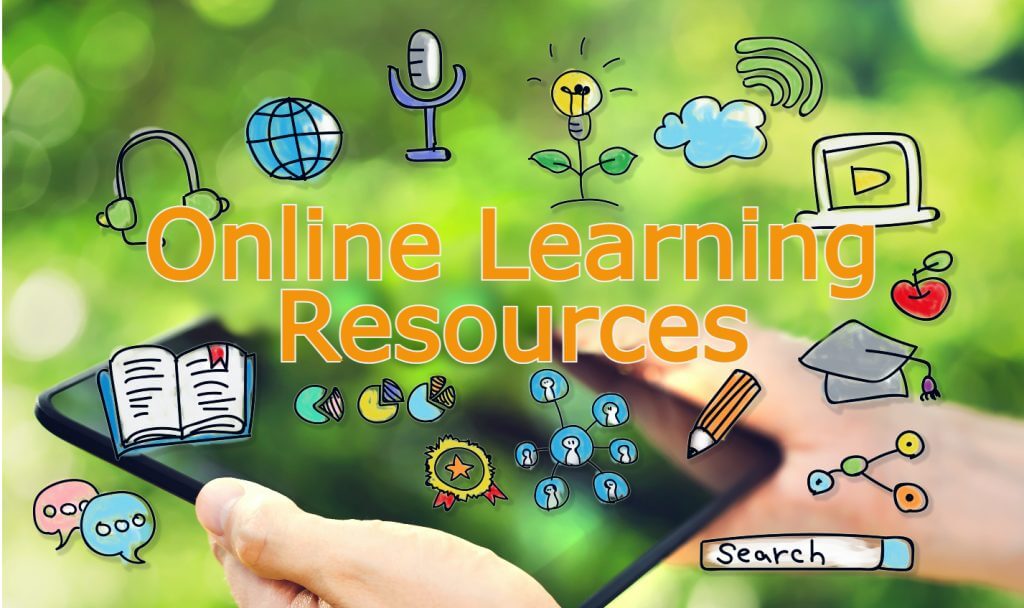Introduction
The digital era has revolutionized education, offering endless opportunities for learning at our fingertips. Whether you’re a student, professional, or hobbyist, online resources empower you to explore new skills, enhance your knowledge, and stay competitive. But how do you effectively use these resources? Let’s dive into the strategies and tools you need to harness the full potential of online learning.
Types of Online Learning Resources
E-Learning Platforms
Platforms like Coursera, Udemy, and edX provide structured courses from top universities and professionals worldwide. These platforms often include video lectures, quizzes, and certifications, catering to learners at all levels. Whether you want to master data science, learn graphic design, or delve into psychology, these platforms offer tailored courses for your goals.
Educational Websites
Websites like Khan Academy and OpenStax deliver high-quality, free educational content on subjects ranging from algebra to biology. Their interactive tools, such as practice problems and progress trackers, make learning engaging and straightforward.
YouTube and Video Tutorials
YouTube has become a treasure trove of free educational content. Channels like CrashCourse and TED-Ed offer bite-sized lessons on complex topics, while creators like Mark Rober provide entertaining and insightful tutorials. Video content is ideal for visual learners who benefit from dynamic explanations.
Mobile Learning Apps
Learning apps like Duolingo, Skillshare, and Memrise allow you to study on the go. Whether improving your language skills or mastering a hobby, these apps deliver convenience and interactivity, making it easy to incorporate learning into your daily routine.
Podcasts and Audiobooks
For those who prefer auditory learning, podcasts and audiobooks provide an excellent alternative. Platforms like Audible and Spotify host content on various topics, from science and business to personal development and storytelling.
Benefits of Using Online Resources for Learning
Flexibility and Convenience
One of the most significant advantages of online resources is their accessibility. Learn at your pace, schedule, and location. Whether you’re a night owl or an early riser, online learning adapts to your routine.
Cost-Effectiveness
Many online resources are either free or far cheaper than traditional education. Platforms like edX even offer financial aid, ensuring knowledge is within everyone’s reach.
Diverse Learning Styles
Online tools cater to different learning styles, offering videos, readings, audio, and interactive simulations. This diversity allows learners to pick methods that resonate most with them, making education enjoyable and effective.
Strategies to Maximize Online Learning
Setting Clear Goals
Establishing what you aim to achieve keeps you motivated and focused. Whether you’re acquiring a certification or learning for personal growth, having a clear purpose ensures you stay on track.
Creating a Structured Routine
Allocate specific time slots for learning to avoid procrastination. Tools like Google Calendar can help schedule your study sessions, creating a habit that reinforces consistency.
Interactive and Hands-On Learning
Engage with your material through activities and projects. For example, coding courses often include real-world projects, enabling learners to apply their knowledge practically.
Evaluating the Quality of Online Resources
Credibility and Accuracy
Verify the qualifications of instructors and the platform’s reputation. Authentic resources often have accreditations or endorsements from recognized institutions.
User Reviews and Testimonials
Reading reviews helps gauge the quality and relevance of a course or resource. Look for patterns in feedback to identify strengths and weaknesses.
Comparing Resources
Don’t settle for the first resource you find. Compare multiple platforms to choose the one that aligns best with your learning goals.

Common Challenges and How to Overcome Them
Information Overload
Prioritize quality over quantity by curating a list of essential resources. Use bookmarking tools to organize your study material.
Procrastination and Distractions
Stay focused by creating a distraction-free learning environment. Tools like the Pomodoro Timer can help manage time effectively, ensuring consistent progress.
Technical Barriers
Invest in reliable devices and internet connections. If access is an issue, consider downloading resources for offline use.
Integrating Online Resources with Traditional Learning
Blended Learning Models
Combining online tools with classroom instruction creates a balanced and enriched educational experience. For instance, students can watch lectures online and engage in discussions in person.
Bridging Skill Gaps
Online resources help fill gaps left by traditional education, offering specialized skills like coding, digital marketing, and data analysis.
Tracking Your Progress in Online Learning
Using Analytics and Progress Trackers
Most platforms provide tools to monitor your performance. Tracking your achievements ensures accountability and highlights areas for improvement.
Self-Assessment Tools
Quizzes, tests, and peer reviews provide valuable feedback, helping you measure your progress and refine your skills.
Future Trends in Online Learning Resources
AI-Powered Learning
Artificial intelligence personalizes learning paths based on your progress, interests, and challenges, making education more adaptive and efficient.
Gamification in Learning
Game-based elements like points, leaderboards, and rewards make learning engaging and fun, fostering better retention.
Virtual and Augmented Reality
Immersive technologies like VR and AR offer hands-on experiences, transforming theoretical concepts into practical understanding.
Conclusion
Online resources have revolutionized the way we learn, offering flexibility, affordability, and diversity. By leveraging these tools effectively, you can unlock endless opportunities for personal and professional growth. Embrace the digital age of learning and make lifelong education a cornerstone of your journey.
FAQs
- What are the best free online learning platforms?
Some excellent free platforms include Khan Academy, Coursera (audit mode), and edX. - How can I stay motivated while learning online?
Set clear goals, create a routine, and reward yourself for small milestones. - Are online courses as effective as traditional education?
Yes, when paired with discipline and hands-on practice, they can be equally effective. - What resources can help me learn a new language?
Apps like Duolingo, Rosetta Stone, and Babbel are great for language learning. - How do I ensure I’m learning from credible online sources?
Check the qualifications of instructors, read reviews, and verify endorsements or accreditations.
